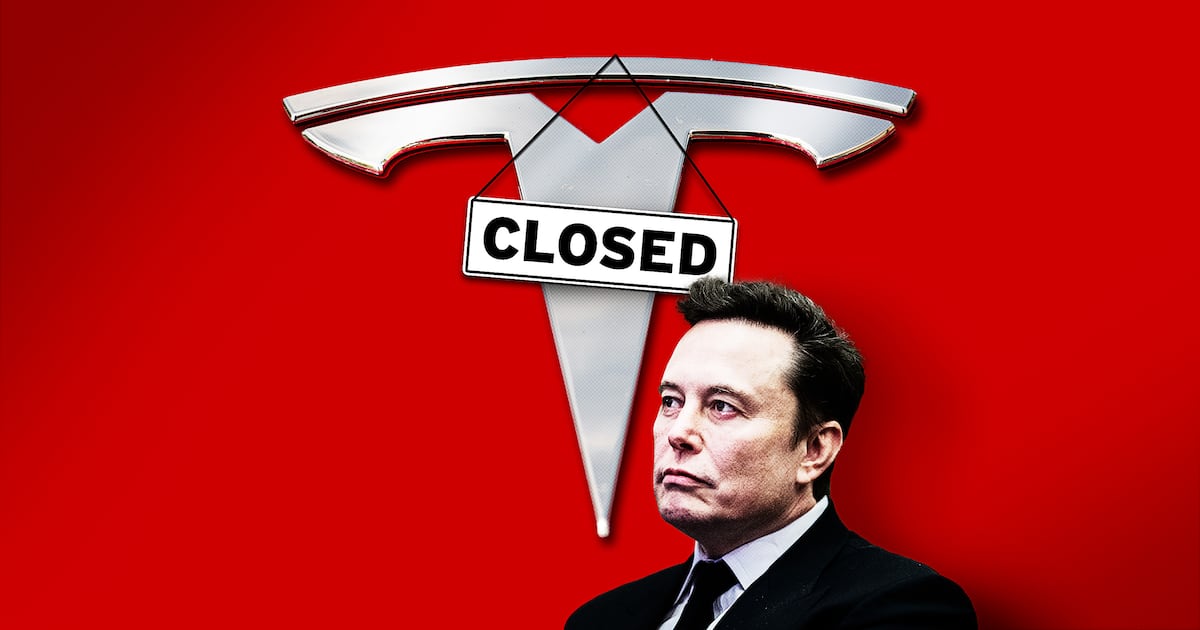MINNEAPOLIS—Derek Chauvin, the former Minneapolis police officer who kneeled on George Floyd for more than nine minutes in an arrest that spurred a worldwide reckoning on race, has been convicted of murder.
After about 10 hours of deliberations, jurors in Hennepin County court found Chauvin guilty of second-degree murder, third-degree murder, and second-degree manslaughter for the unarmed Black man’s death after the May 25, 2020, arrest, in which the former officer was filmed pressing his knee into Floyd’s neck as he cried out for help. The 12 jurors, who were sequestered and deliberated at a nearby hotel, did not have any questions for the court.
“I would not call today’s verdict justice... because justice implies true restoration. But it is accountability, which is the first step toward justice,” Minnesota Attorney General Keith Ellison said Tuesday. “George Floyd mattered because he was a human being.”
As Judge Peter Cahill read the guilty verdict, Chauvin remained unemotional, staring at the judge from the defense table with a blue mask covering most of his face. Chauvin’s attorney reportedly tried to talk his client, but he was “in a daze.” At one point, the ex-officer turned his chair and glanced at Floyd’s brother, Philonise, who was visibly shaking during the hearing.
Chauvin was led out of the courtroom in handcuffs, and now faces a maximum of 40 years in prison. His sentencing will take place in two months.
The guilty verdict was greeted with an eruption of gleeful cheers outside the Hennepin County Government Center and George Floyd Square in Minneapolis, where dozens had gathered ahead of the monumental announcement.
President Joe Biden and Vice President Kamala Harris also cheered the jury’s decision, calling the Floyd family to congratulate them. During his news conference on Tuesday, Biden insisted that “no one should be above the law and today’s verdict sends that message, but it is not enough.”
“It was a murder in full light of day and ripped the blinders off for the whole world to see systemic racism...a stain on our nation's soul,” Biden said.
A throng of people near the Hennepin County courthouse moved into the street while speakers passed a bullhorn, calling for continued justice. Others grilled on the sidewalk in what appeared to be a city-wide celebration. A half dozen law enforcement and National Guard members overlooked the plaza from a balcony in the highly fortified block of downtown Minneapolis.
“As a Black woman, I heard the verdict, but for so long we have not been seen or heard,” Rachel Washington, a Minneapolis resident, told The Daily Beast after admitting the guilty verdict still feels “unreal.” “I’m watching the celebration, but it hasn’t sunk in yet...but I feel like Black lives today matter. Justice was served today.”
Cherise Brown, of Minneapolis, told The Daily Beast the verdict feels good—but once Chauvin is sentenced “it will be a lot better.” Despite the victory, Brown said she still fears for the safety of her 27-year-old Black son.
Alexis Kramer, a Maplewood resident, admitted that the verdict brings mixed feelings because while she believes the jury “chose to do the right thing,” she still wants to see ongoing systemic change.
“I believe today is one step forward,” Kramer told The Daily Beast. “I’m just sad that it had to take all the rioting and looting to get them to actually listen.”
Celebrations over the guilty verdict also broke out in other cities across the country.
Shortly after 6 p.m. there were around 200 people milling around the Barclays Center in New York City, wearing Black Lives Matter t-shirts and listening to organizers give speeches. Spike Lee showed up on his bike in a purple tie-dye outfit and posed for pictures with kids and activists, and mayoral candidate Maya Wiley gave a quick speech.
Blocks away from the Barclays center, news of the verdict was blooming on the streets in a less organized way, with people sticking their heads out of bodegas to talk to their neighbors and chatting animatedly with strangers about the verdict.
“With the verdict that came down, we’re okay with it, but we still need more change. There’s still a lot of work to be done, but if we get one [guilty verdict] then we can get more,” said Bishop Lord, 49.
“I’m feeling a mix of emotions. I don’t want to be here but I know it’s important to be here. Sure, they convicted the guy, but I’m still upset. I’ve been feeling F’d up ever since I saw that film of George Floyd, this guy kneeling on his neck. I can barely talk right now, but I’m grateful to all of the allies out here tonight,” said Joseph Sellman, a member of Black Lives Matter New York.
Floyd’s final pleas of “I can’t breathe” became a rallying cry, bringing energy to the Black Lives Matter movement and renewed scrutiny of Black deaths at the hands of police. The verdict comes just days after a white police officer in the Minneapolis suburb of Brooklyn Center fatally shot 20-year-old Daunte Wright, a Black man, apparently firing her service weapon by accident instead of a Taser during the traffic stop. Wright’s death sparked sometimes violent protests in a city already on edge, with hundreds of residents taking to the streets.
“Today we are able to breathe again,” Philonise Floyd said during a press conference after the jury’s decision was announced. Terrence Floyd, another brother, added: “History is here. This is monumental.”
Civil rights attorney Ben Crump, who represents Floyd’s family, celebrated the verdict, saying it sends a “clear message” to law enforcement across the country.
“Painfully earned justice has arrived for George Floyd’s family and the community here in Minneapolis, but today’s verdict goes far beyond this city and has significant implications for the country and even the world. Justice for Black America is justice for all of America,” Crump said in a statement. “This case is a turning point in American history for accountability of law enforcement.”
Anticipating potential unrest ahead of the verdict, Minnesota Gov. Tim Waltz had declared a peacetime emergency in seven counties in the state. Minnesota National Guard soldiers joined local law enforcement in guarding the courthouse, which was surrounded by a chain-link fence and concrete barriers.
Over the four-week watershed trial, prosecutors argued Chauvin, 45, “betrayed” his badge on May 25 when he ignored Floyd’s dozens of pleas for help as he knelt on his neck for a total of “9 minutes and 29 seconds.” Chauvin’s defense insisted the former cop was just doing what any other “reasonable officer” would do during a “dynamic” arrest.
“George Floyd didn’t have to die that day; shouldn’t have died that day. But for the fact that the defendant decided not to get up and not to let up, George Floyd died,” prosecutor Steve Schleicher told jurors in Hennepin County court during closing arguments on Monday.
Schleicher insisted that Chauvin heard Floyd’s pleas for help “but he just didn’t listen” and “chose pride over policing.” Schleicher added that while Floyd repeated he couldn’t breathe 27 times in the first four minutes and 45 seconds of his arrest, all Chauvin did “was mock him,” telling him, “It takes a lot of oxygen to complain.”
“He knew better. He just didn’t do better. What [Chauvin] did is not policing. What [Chauvin] did is assault,” the prosecutor added. “That day, his badge wasn’t in the right place. He’s not on trial for who he was. He’s on trial for what he did.”
To make that point, prosecutors called several of Chauvin’s former peers, including Minneapolis Police Chief Medaria Arradondo who claimed the ex-cop “absolutely” violated department protocol. Three medical experts also testified that Floyd died of low oxygen from the cop’s actions during the arrest. In the gut-wrenching video, Floyd can be heard repeatedly asking for help, calling out for his mother, and saying he could not breathe.
Chauvin’s lawyer, Eric Nelson, offered his own narrative to the jury. With seven of his own witnesses, Nelson argued that Floyd’s death could have been caused by several other factors, including carbon-monoxide poisoning or his history of drug use, and not necessarily his client’s forceful knee restraint. At least two law-enforcement officers who also assisted the Minneapolis police department during Floyd’s arrest testified that the crowd that surrounded the officer was “very aggressive”—which may have spooked him.
“There is absolutely no evidence that Officer Chauvin intentionally, purposefully applied unlawful force,” Nelson insisted during his closing argument on Monday. “These are officers doing their jobs in a highly stressful situation. It’s tragic. It’s tragic.”
Nelson urged jurors to look at the “totality” of Floyd’s arrest—and not just the nine minutes Chauvin held his knee on Floyd’s neck. He also argued that several factors could have contributed to Floyd’s death and that Chauvin was distracted while dealing with the growing anger from bystanders and failed to notice that Floyd had stopped breathing.
“Human behavior is unpredictable and nobody knows that better than a police officer. Someone can be compliant one second and fighting the next,” Nelson said. “Officers are human beings capable of making mistakes in highly stressful situations.”
Three other officers involved in the arrest—Tou Thao, Thomas K. Lane, and J. Alexander Kueng—will now face trial in August on charges of aiding and abetting second-degree murder while committing a felony, and aiding and abetting second-degree manslaughter with culpable negligence.










